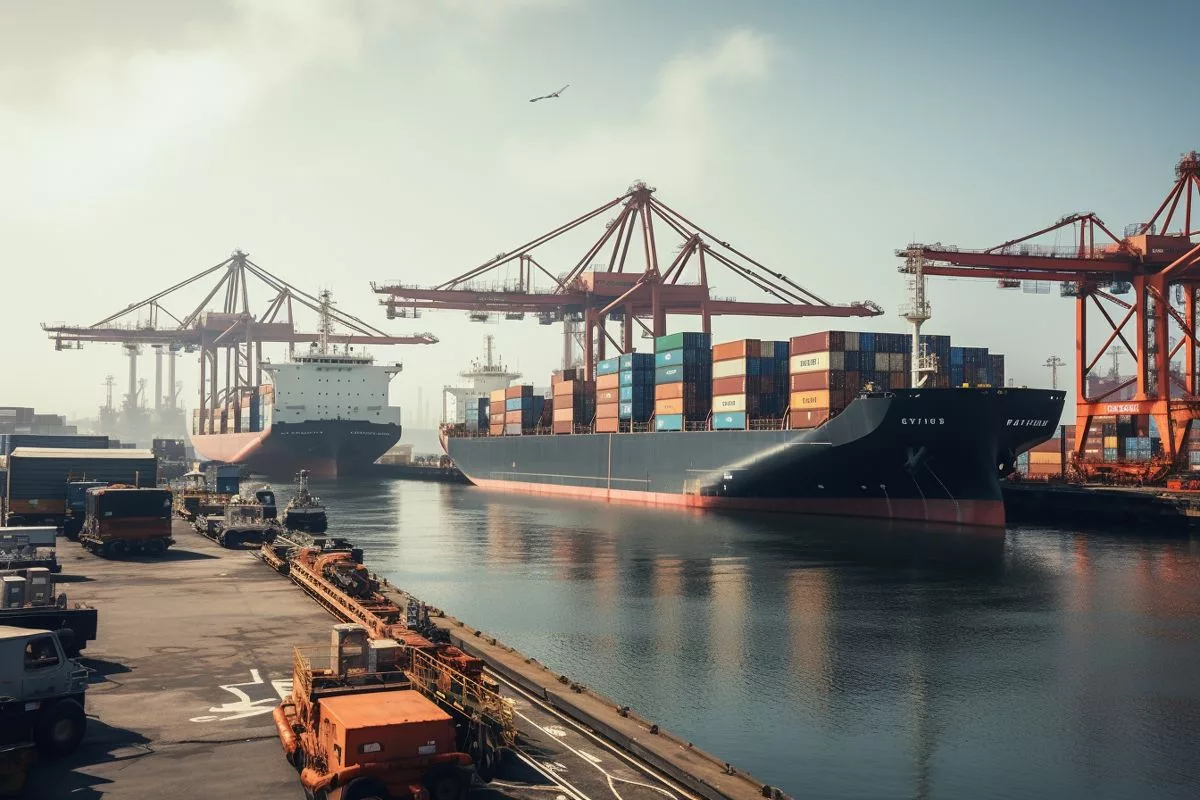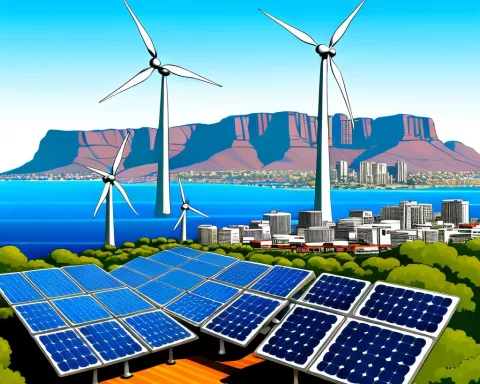Western Cape Premier Alan Winde is working to resolve the infrastructure challenges at the Port of Cape Town, which caused delays for vessels and impacted the provincial economy. He engaged in discussions with national government ministers to address the inefficiencies and fiscal shortcomings faced by the province. Premier Winde stressed the importance of infrastructure developments for stimulating exports and economic growth, particularly for the agricultural sector. Despite the challenges of the past year, the government remains committed to the welfare of its citizens and ensuring safety during the festive season.
Addressing Cape Town’s Port Crisis: Premier Winde’s Efforts and Insights. Premier Winde’s determined efforts towards resolving the infrastructure issues plaguing the Port of Cape Town reflect his administration’s commitment to the province’s economic growth and the welfare of its residents.
In the closing months of the year, Western Cape Premier Alan Winde has been actively engaged in tackling the ongoing infrastructure challenges plaguing the Port of Cape Town. In November, these issues caused notable delays for vessels, prompting some to avoid the port due to its substandard service. The cabinet’s year-end meeting focused primarily on this issue.
Winde used the occasion to share his discussions with national government ministers. These conversations, which took place on December 11th and 12th, were primarily centered around the inefficiencies hampering the Port of Cape Town and the significant fiscal shortcomings faced by the provincial administration.
On the 11th of December, Premier Winde spearheaded a team to converse with Minister of Public Enterprises Pravin Gordhan and delegates from Transnet, the pivotal element of the freight logistics chain that provides goods to the South African populace. The meeting unveiled a nationwide recovery plan in progress. The Western Cape Government (WCG) Cabinet, recognizing the urgency of the matter, vowed to closely monitor these initiatives and advocate for immediate improvements to the port’s infrastructure.
Infrastructure Developments and Economic Implications
Winde stressed the importance of these developments for stimulating exports and economic growth, particularly for the agricultural sector, a vital part of the South African economy. Following this, Premier Winde led another group to Gauteng for a discussion with Finance Minister Enoch Godongwana and other officials on the subsequent day.
The primary discussion point in this meeting was the central government’s unsustainable public sector wage increase agreement. This was the epicenter of the Intergovernmental Dispute (IGD) that the WCG initiated due to the significant funding shortfall. The Cabinet sees this issue as a top-priority matter, viewing it as a potential precedent-setter for future public service wage talks and key to ensuring essential services like education, healthcare, and road maintenance continue uninterrupted.
Reflecting on the Past and Looking Forward
Premier Winde utilized the Cabinet meeting to reflect on the struggles of the past year, which included severe floods, historic load shedding, a disruptive minibus taxi strike, revelations from the 2022 Census, logistics sector failures, and the rising cost of living and inflation. However, he reaffirmed the government’s commitment to the welfare of its citizens, despite these hurdles.
The meeting also provided Winde with a chance to wish the province’s residents and visitors a safe holiday season. He emphasized the need for safety and responsibility, especially on the roads during this busy time.
“As we enter the festive season, I urge everyone to navigate it safely,” he urged. “We will be on our highways; please travel cautiously, be responsible for yourself and your fellow citizens, and extend courtesy to your fellow citizens.”
As the Western Cape transitions into the festive season, the government’s attention is still fixed on addressing infrastructure problems, securing financial resources, and guaranteeing the safety of both its residents and visitors. The end of the year is marked by these challenges, leading to anticipation for the progress that 2023 is expected to bring.
In conclusion, Premier Winde’s determined efforts towards resolving the infrastructure issues plaguing the Port of Cape Town reflect his administration’s commitment to the province’s economic growth and the welfare of its residents. Though the year has been marked with challenges, the provincial government’s focus remains on securing financial resources, ensuring safety, and enhancing the quality of life for its citizens. With the onset of the festive season, the emphasis on safety and responsibility is more pertinent than ever. As 2023 approaches, the province looks forward to overcoming these hurdles and making significant strides towards progress.
1. What is Western Cape Premier Alan Winde working on currently?
Premier Winde is working to resolve the infrastructure challenges at the Port of Cape Town, which caused delays for vessels and impacted the provincial economy.
2. Who did Premier Winde engage in discussions with to address the inefficiencies and fiscal shortcomings faced by the province?
Premier Winde engaged in discussions with national government ministers to address the inefficiencies and fiscal shortcomings faced by the province.
3. Why is infrastructure development important to Premier Winde?
Premier Winde stressed the importance of infrastructure developments for stimulating exports and economic growth, particularly for the agricultural sector, a vital part of the South African economy.
4. What was discussed in Premier Winde’s meeting with Finance Minister Enoch Godongwana and other officials?
The primary discussion point in this meeting was the central government’s unsustainable public sector wage increase agreement, which was the epicenter of the Intergovernmental Dispute (IGD) that the WCG initiated due to the significant funding shortfall.
5. What did Premier Winde reflect on during the Cabinet meeting?
Premier Winde utilized the Cabinet meeting to reflect on the struggles of the past year, which included severe floods, historic load shedding, a disruptive minibus taxi strike, revelations from the 2022 Census, logistics sector failures, and the rising cost of living and inflation.
6. What did Premier Winde emphasize as the festive season approaches?
Premier Winde emphasized the need for safety and responsibility, especially on the roads during this busy time, and urged everyone to navigate it safely.












